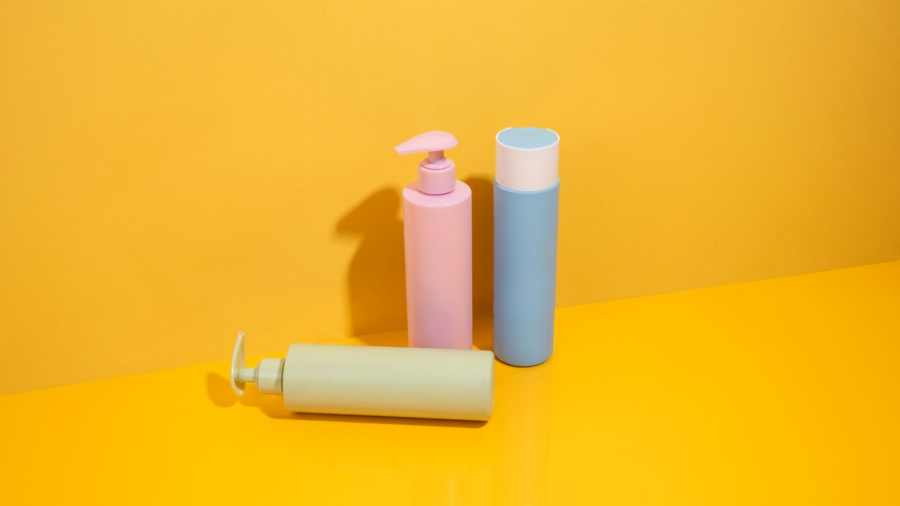Introduction
The hustle and bustle of Amsterdam’s Schiphol Airport is about to experience a familiar sight: the return of mini bottles of shampoo at security checkpoints. In a move that blends nostalgia with practicality, Schiphol’s decision to bring back these tiny toiletries has travelers and environmentalists buzzing. Let’s delve into the story behind this change, its implications, and how it fits into the broader landscape of travel and sustainability.
A Blast from the Past
For many seasoned travelers, the sight of mini bottles of shampoo, conditioner, and lotion at airport security is a throwback to an era before liquid restrictions took hold. These small conveniences were often lifesavers for those who forgot to pack essentials or found themselves on unexpected layovers. However, with the introduction of stricter liquid limits in the early 2000s, these mini bottles all but disappeared from airport terminals.
The Return of the Mini Bottles
The decision to reintroduce mini bottles at Schiphol is part of a broader effort to enhance the passenger experience and streamline the security process. As global travel rebounds post-pandemic, airports are pressured to manage increased foot traffic efficiently while maintaining high-security standards. Schiphol’s move aims to balance convenience and safety, offering travelers a small but meaningful amenity that can make their journey a bit smoother.
Environmental Considerations
At first glance, the return of mini bottles might seem at odds with the growing push towards sustainability. Single-use plastics have been a major focus of environmental campaigns, and many companies have shifted towards refillable or bulk options to reduce waste. However, Schiphol’s approach is not as straightforward as it appears.
The airport has committed to using eco-friendly packaging for these mini bottles, made from biodegradable or recyclable materials. This initiative aligns with broader efforts to minimize environmental impact while still providing convenience. By ensuring that the packaging is environmentally responsible, Schiphol is addressing the dual concerns of traveler satisfaction and sustainability.
Traveler Convenience
For frequent flyers, the convenience of mini bottles cannot be overstated. These small items can make a big difference during long layovers, unexpected delays, or when luggage is lost. Having access to essential toiletries without needing to navigate the complexities of duty-free shopping or rummaging through carry-on bags is a welcome relief.
Moreover, the reintroduction of mini bottles can also help reduce the time spent at security checkpoints. By providing travelers with compliant-sized toiletries, Schiphol aims to minimize delays caused by liquid restrictions. This can lead to a smoother, more efficient security process, ultimately benefiting both passengers and airport staff.
Economic Implications
The move to bring back mini bottles also has economic considerations. Airports generate significant revenue from retail operations, and offering convenient travel-sized products can boost sales. For Schiphol, this decision is likely a calculated effort to enhance passenger spending while improving overall satisfaction.
Additionally, the presence of branded mini bottles can serve as a marketing opportunity for companies. Partnering with Schiphol to provide these products can increase brand visibility and loyalty among travelers, creating a win-win situation for both the airport and participating brands.
A Trendsetter in the Industry
Schiphol’s decision to reintroduce mini bottles may set a precedent for other airports around the world. As one of Europe’s busiest airports, Schiphol often leads the way in adopting new technologies and policies. If this initiative proves successful, it could inspire similar changes at other major airports, reshaping the travel experience on a global scale.

Balancing Act: Security and Convenience
One of the most significant challenges airports face is balancing security measures with passenger convenience. The stringent liquid restrictions were implemented in response to security threats, and any changes to these policies must be carefully considered. Schiphol’s approach reflects a nuanced understanding of these dynamics, offering a solution that maintains security while enhancing traveler comfort.
Feedback from Travelers
Initial reactions from travelers have been overwhelmingly positive. Frequent flyers have expressed appreciation for the added convenience, noting that it simplifies their travel experience. Some have also highlighted the environmental considerations, praising Schiphol’s commitment to using sustainable packaging.
However, not everyone is on board with the change. Critics argue that even with eco-friendly packaging, the reintroduction of mini bottles could still contribute to plastic waste. They advocate for more permanent solutions, such as refill stations or encouraging travelers to bring their toiletries in reusable containers.
Future Innovations
The return of mini bottles at Schiphol could be just the beginning of a broader trend towards enhancing traveler convenience. As technology continues to evolve, airports are exploring various ways to improve the passenger experience. From automated check-ins to advanced baggage handling systems, the future of air travel is poised to become more streamlined and efficient.
For instance, Schiphol is also investing in digital solutions to further expedite the security process. Innovations such as facial recognition technology and automated screening systems could reduce wait times and enhance security, creating a more seamless journey from check-in to boarding.
Conclusion
The reintroduction of mini bottles of shampoo at Schiphol Airport is a small change with potentially significant impacts. By addressing traveler convenience, environmental concerns, and economic factors, Schiphol is demonstrating a holistic approach to modernizing the travel experience. As this initiative unfolds, it will be interesting to see how it influences policies at other airports and shapes the future of air travel.
In the ever-evolving landscape of global travel, Schiphol’s decision serves as a reminder that sometimes, the smallest changes can make the biggest difference. Whether you’re a frequent flyer or an occasional traveler, the return of these mini bottles is a welcome nod to the past, with an eye towards a more convenient and sustainable future.
Read more about these advancements on Zenith Blogs.




